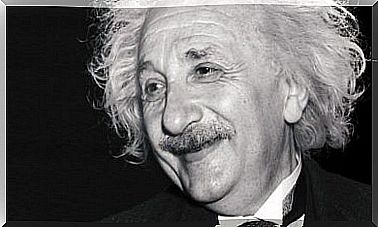Intelligence, Without Motivation, Is Not Enough

Being smart is a gift. It is something on which genetics has a lot to say and, therefore, on which we have limited room for maneuver. But is it enough to succeed? A large part of that innate intelligence, when not directed by effort and motivation, falls “on deaf ears” and leaves a trail of missed opportunities. Thus, intelligence, although it is a great help when it comes to achieving goals, you have to know how to manage it.
Universities are full of people who may not shine for their intelligence, but for their perseverance and their desire to learn and teach. There are many authors of important achievements who went unnoticed in school, but whose tenacity has taken them very far. Success is not limited by the result of a quotient (in this case, intellectual); Counting on the influence of other factors, on which we have a greater capacity for intervention, our creative limits are much further from where we usually place them.
There are people with an IQ much higher than the average, such as the gifted, but even in these cases you have to know how to direct this intelligence to turn it into virtue and not into a powerful enemy. Thus, in schools it is important to detect potentially intelligent children to facilitate and train them with tools and content adapted to their capacity. Sometimes these children get bored and can pass for children who fail.

Types of motivation
Motivation is an engine that drives us to carry out a wide spectrum of activities. On the other hand, it should be noted that there are two types of motivation: extrinsic and intrinsic. Extrinsic motivation could be defined as one that feeds on external motives such as money, recognition or reward. For example, salary is the most powerful extrinsic motivation for many people to go to their job every day.
On the other hand, intrinsic motivation is linked to internal motives, such as the pleasure of doing the activity, the desire to learn or the interest it arouses in us. This type of motivation is usually the one that labels the bag where we keep our hobbies or hobbies , such as painting, writing or sports.
At first it might seem that extrinsic motivation would be more powerful, since a tangible benefit can be obtained. Perhaps this is the case, however the studies leave us a reflection in this regard. The results suggest that if we introduce extrinsic motivation in an activity that someone performs for intrinsic motivation, the general motivation will not increase. What will happen is that part of the intrinsic motivation will be lost in favor of the extrinsic one, so that if in the future we withdraw the extrinsic motivation, the person may feel demotivated and abandon the activity.
How can we increase motivation?
Many times failure in a job or task is not caused by incompetence, but by lack of motivation. Both children at school and adults at work need a push to make the most of their abilities. There are several strategies that can ignite the spark of intrinsic motivation:
- Acknowledge your successes and not just your failures.
- Give more decision-making capacity and freedom to contribute ideas.
- Change skills from time to time, avoiding monotony.
- Give flexibility. Do not impose certain schedules but give a margin to reconcile professional and personal life.
- Make sure that the assigned tasks are according to their skills or abilities. If it is below, you may get bored. If it exceeds you, you could become stressed and unmotivated.
- Create a comfortable and suitable environment.
These ideas could be applied to any type of work or academic center. Although motivation will also depend on each person, it can be encouraged and improved. Even with an intrinsic motivation for a job, if the employee does not see his task recognized, his performance can decrease and feel undervalued.
Opportunities do not come, you have to go out and look for them
We all know examples of people who have succeeded. Someone who opened a business in a modest way and ended up succeeding, another who after a few years managed to pass a competitive examination or the one who went abroad to try his luck and ended up with the dreamed position. “How lucky they are” we might think, but behind each triumph there are many hours of work, risks taken and difficult decisions.

Fear of failure can be the most powerful brake on motivation. The world is full of people with great intelligence and abilities who dare not shine. This fear may have been instilled in us since we were children when they told us that we had to be careful, that we had to do what our parents and teachers said without any possibility of innovation.
The intelligence is a gift to be able to develop and focus. One of the best ways to do this is to tune it to our expectations, what we are intrinsically motivated for, what we like. The truth is that there is not much chance that someone will knock on our door to adjust a custom opportunity; You have to go looking for it, and you also have to go looking for it with faith and the conviction that, being more or less intelligent, we have a lot of contributions to make.









